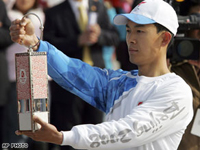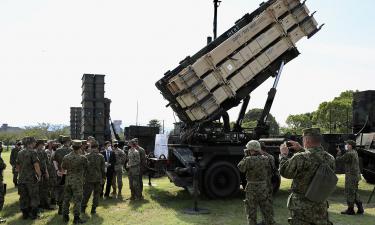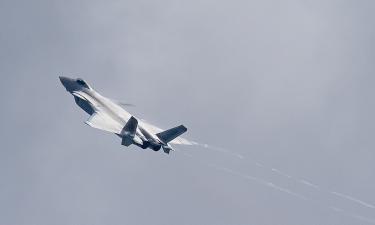Olympic torch re-lit in Beijing
The Olympic torch has been re-lit at an elaborate ceremony in Beijing that included President Hu Jintao, signaling the start of a round-the-world torch relay.

Hu's participation shows the importance China place on the Olympics, which start August 8, to show a confident, strong China to the world.
Read also 'Chinese prepare to live in hell for 2008 Summer Olympics'
The ceremony on Monday 130 days before the start of the Olympics was broadcast on state television, and comes a week after the lighting ceremony for the Olympic torch in Greece was marred by protests.
Concern about anti-government protests extended to the state television broadcast. Although the broadcast signal carried a banner saying it was "live," there appeared to be a delay of about 1 minute.
The torch arrival in Beijing allows the government a brief respite before the relay sets off on a problematic, month-long world tour, the AP reports.
The Olympic Torch is an important symbol of the Olympic Games. Commemorating the theft of fire from the Greek god Zeus by Prometheus, its origins lie in ancient Greece, when a fire was kept burning throughout the celebration of the ancient Olympics. The fire was reintroduced at the 1928 Summer Olympics in Amsterdam, and it has been part of the modern Olympic Games ever since. The modern torch relay was introduced by Carl Diem, president of the Organisation Committee for the 1936 Summer Olympics in Berlin, as part of an effort to turn the games into a glorification of the Third Reich. The torch ceremony is still practiced as of 2008.
Over the years, it has become a tradition to let famous athletes or former athletes be the last runner in the relay. The first well-known athlete to light the fire in the stadium was ninefold Olympic Champion Paavo Nurmi, who excited the home crowd in 1952. Other famous last bearers of the torch include French football star Michel Platini (1992), heavyweight boxing champion Muhammad Ali (1996) and Australian aboriginal runner Cathy Freeman (2000).
On other occasions, the people who lit the fire in the stadium are not famous, but nevertheless symbolise Olympic ideals. Japanese runner Yoshinori Sakai was born in Hiroshima on August 6, 1945, the day the nuclear weapon Little Boy destroyed that city. He symbolised the rebirth of Japan after the Second World War when he opened the 1964 Tokyo Games. At the 1976 Games in Montreal, two teenagers — one from the French-speaking part of the country, one from the English-speaking part — symbolised the unity of Canada. (Folklore has it that the two were later married, but that was not the case.)
Subscribe to Pravda.Ru Telegram channel, Facebook, RSS!



